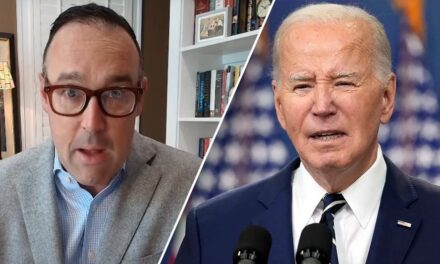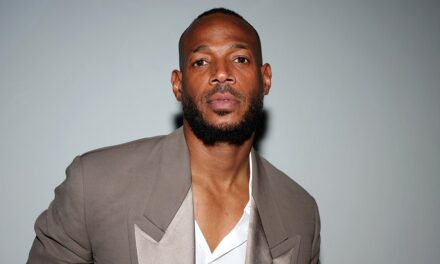In a compelling episode of “The Late Show with Stephen Colbert,” the host engaged in a thought-provoking dialogue with Zohran Mamdani, a candidate for mayor of New York City who identifies as a democratic socialist. The discussion covered a range of contentious topics, particularly focusing on Mamdani’s stances regarding Israel and allegations of antisemitism that have emerged in political discourse.
Mamdani, whose platform incorporates progressive ideals and community-focused policies, faced tough questions from Colbert, who deftly navigated the sensitive topic of Israel-Palestine dynamics. With tensions running high in America concerning the ongoing conflict in the Middle East, the confrontation highlighted the complexities socialist politicians face when addressing foreign policy issues, especially those related to Israel.
Colbert initiated the conversation by asking Mamdani about a number of incidents that have been reported in media concerning comments made by political figures and scholars related to Israel’s governmental policies. He pointedly queried whether Mamdani could clarify his stance on the Israeli-Palestinian conflict, given that his political ideology often aligns with progressive critiques of Israeli government actions.
“I think it’s vital to differentiate between criticism of Israel as a state and antisemitism,” Mamdani began, echoing sentiments shared by numerous advocacy groups that aim to combat hate while holding governments accountable for their policies. He emphasized that criticizing Israel’s actions does not equate to hating Jewish people but rather advocating for Palestinian rights and pushing for peaceful resolutions.
However, Colbert pressed further, citing specific examples that some perceive as crossing the line from criticism into antisemitism. The late-night host’s approach was firm yet inviting, creating a space for Mamdani to articulate his views without feeling cornered. This kind of dialogue emphasized not only the complexity of the Israeli-Palestinian issue but also the societal nuances surrounding discussions of identity and religion in political discourse.
As the discussion progressed, Mamdani elaborated on his personal experiences, explaining that having grown up in a multicultural environment shaped his understanding of diverse perspectives. He pointed out that many individuals, including himself, seek to challenge power dynamics rather than attack communities outright. This nuanced approach aims to foster an inclusive political climate where advocacy for human rights can find its footing without becoming mired in accusations of bigotry.
The dialogue took a more personal turn when Colbert posed an inquiry about how Mamdani responds to accusations or pushback from those who disagree with him. Mamdani expressed that he sees dissent as a natural part of civic engagement — a platform for dialogue rather than division. He encouraged viewers to lean into conversations that are often uncomfortable but necessary for growth and understanding.
Colbert then pivoted the conversation to practical implications of Mamdani’s ideas should he be elected mayor. He asked, “How do you balance the urgent needs of New Yorkers with your view on international humanitarian issues?” It was a fair question that sought to understand how policies related to distant conflicts could influence local governance.
Mamdani responded passionately, detailing his vision for a New York that is deeply interconnected with global issues. He argued that what happens across the world influences local conditions, especially in a city as diverse as New York. For him, the mission is not solely about local governance but also about establishing ethical precedents in policy-making that align with justice and human rights.
Moreover, Mamdani insisted that the role of the mayor extends beyond domestic issues. He highlighted the importance of advocating for immigrant rights, affordable housing, education, and health care — issues that are interconnected with larger discourses around global justice. His argument resonates with those who believe in the importance of local leaders taking a stand on international issues that matter to their constituents.
This multifaceted discussion culminated in Colbert’s insightful reminder that everyone has a role to play in shaping narratives around such global matters. He expressed hope that healthy, challenging dialogues like the one with Mamdani can foster a more intelligent electorate that is engaged and informed, rather than divided.
As the episode wrapped up, it was evident that Colbert successfully catalyzed a conversation not just about Mamdani’s candidacy but also about the larger implications of political ideologies on governance. The interview served as a microcosm of the broader societal discussions surrounding Israel, Judaism, and human rights in America today, provoking thought and reflection among viewers.
Mamdani’s willingness to engage openly in such a high-pressure environment illustrates a growing trend among political candidates who aim to navigate the complexities of modern ideologies. As democratic socialism continues to gain traction in various urban settings, candidates like Mamdani face unique challenges in making their positions clear while remaining accessible to the nuanced spectrum of public opinion.
This episode of “The Late Show” not only entertained but also educated audiences on the intricacies of political dialogue in the face of sensitive subjects. It will likely resonate with many individuals who seek to unpack the layers of identity, belief, and political strategy as they shape their views leading into the upcoming mayoral election.
Moreover, as America’s political landscape continues to evolve, the importance of platforms where such discussions can occur becomes increasingly essential. Whether through late-night shows, public forums, or other media formats, ensuring that challenging conversations are part of the political fabric can help cultivate a citizenry that is informed, empathetic, and engaged.
The demands on candidates to articulate their stances clearly and compassionately will only intensify as maters of international concern intersect with local governance. In this decade marked by rapid change and social upheaval, platforms facilitating these necessary dialogues are vital for fostering clarity and understanding among the electorate.
In conclusion, the exchange between Stephen Colbert and Zohran Mamdani not only illuminated the tensions surrounding Israel and antisemitism but also highlighted the broader implications of political discourse in shaping community relations. As New York moves toward its next elections, the conversations sparked by this interview will likely echo through the campaign trail, influencing how candidates articulate their positions across a spectrum of issues.
































